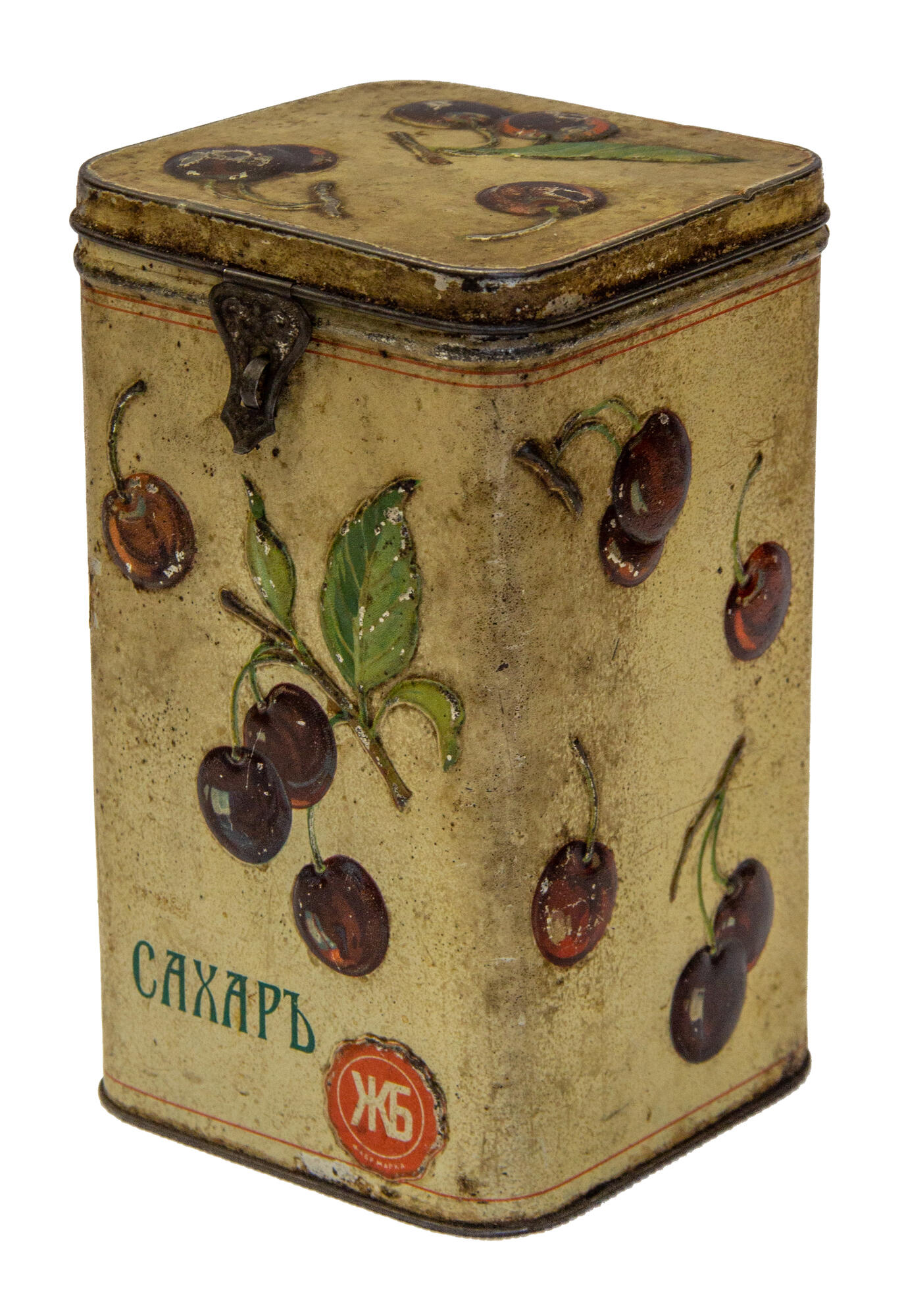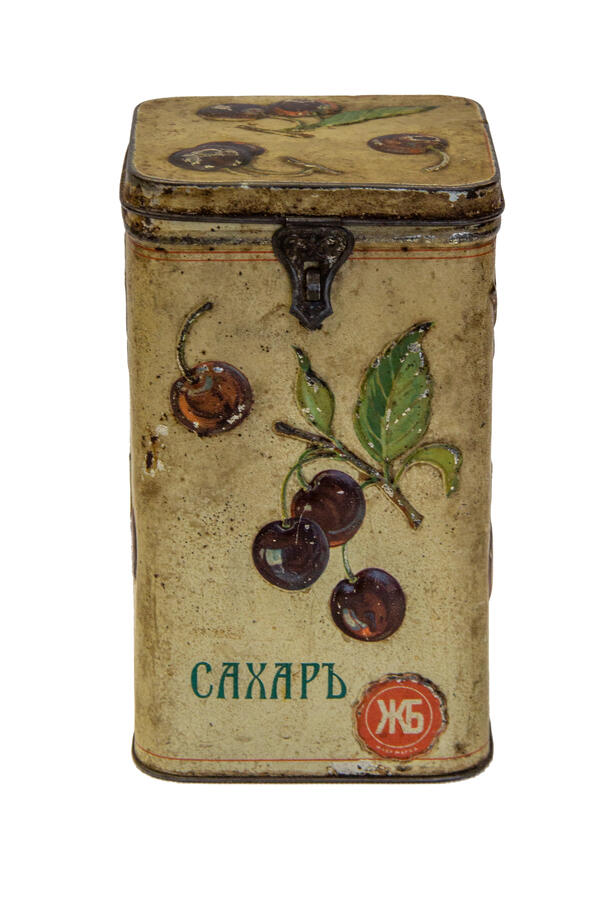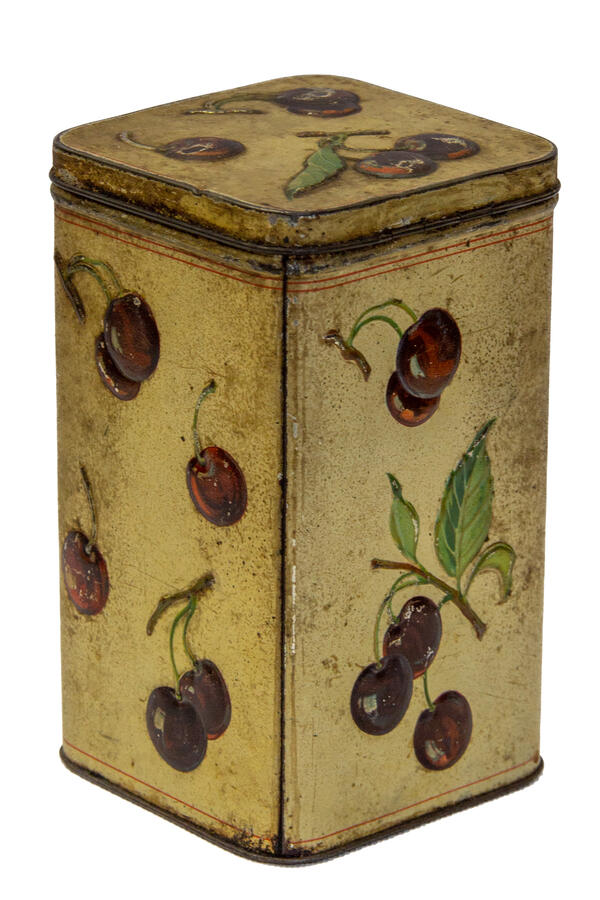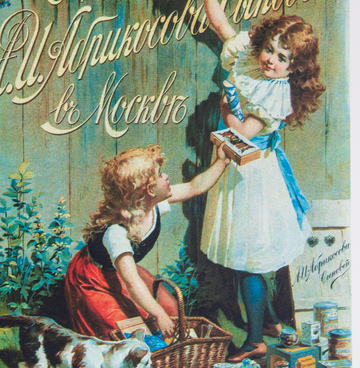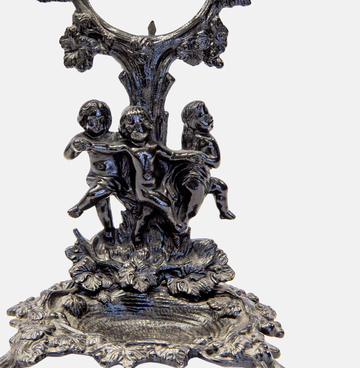The box with the inscription “Sugar” was made somewhere between 1890 and 1910 and belonged to a family who lived in a house on Yeletskaya Street in Tyumen from 1915 to 1994. On the front side of the box there is a factory brand “GB”, and on the bottom — the name of the factory “Georges Borman” and the coat of arms of the Russian Empire.
Grigory Nikolaevich Borman was a Russified German and the son of a pharmacist. When he was a student, he worked part-time as a salesman in a confectionery store. The shop owners, a childless elderly couple, were so impressed by the young man’s diligence and his interest in the process of making sweets that they decided to make him the new owner of the store. In 1862, Borman opened a small shop on 21 Nevsky Prospekt and called it “Georges Borman”, thus immortalizing his first and last name.
Borman invested his income from producing confectionery products to expand the business and acquired a chocolate factory on English Avenue. The products of the Georges Borman factory received a bronze medal at the All-Russian Exhibition and three gold medals at the World Exhibition in Paris. In 1893, his son Georgy Grigorievich Borman joined his father’s business.
The Georges Borman Partnership produced sponge cakes, chocolates, caramel, pastille and lollipops. The Borman enterprise produced up to 150 poods (approximately 2,457 kilograms) of all sorts of products per day. Customers were offered about 200 kinds of sweets. Georges Borman’s cocoa became a serious competitor to coffee.
Prices for chocolates ranged from 65 kopecks to 1 ruble 75 kopecks per pound (approximately 0.4095 kilograms). An interesting fact: in 1898, a chocolate vending machine was installed at the corner of Nevsky Prospekt and Nadezhdinskaya Street, a chocolate bar cost 15 kopecks, the device did not accept coins of any other denomination.
In 1917, the political climate as well as the socio-economic environment in the country changed dramatically. The Georges Borman Partnership ceased to exist. Its factories and shops in Petrograd and Kharkov became state property. The factory in Petrograd was renamed the “1st State Candy and Chocolate Factory”, it was named after the revolutionary Konkordiya Samoilova.
Grigory Borman died on December 25, 1918 in Kharkov, at the age of 82. His only son Georgy emigrated a year earlier. After settling in France, he continued to do what he loved and opened a confectionery store in Paris. Even though the scale was much smaller and the country was different, he continued his family business.
